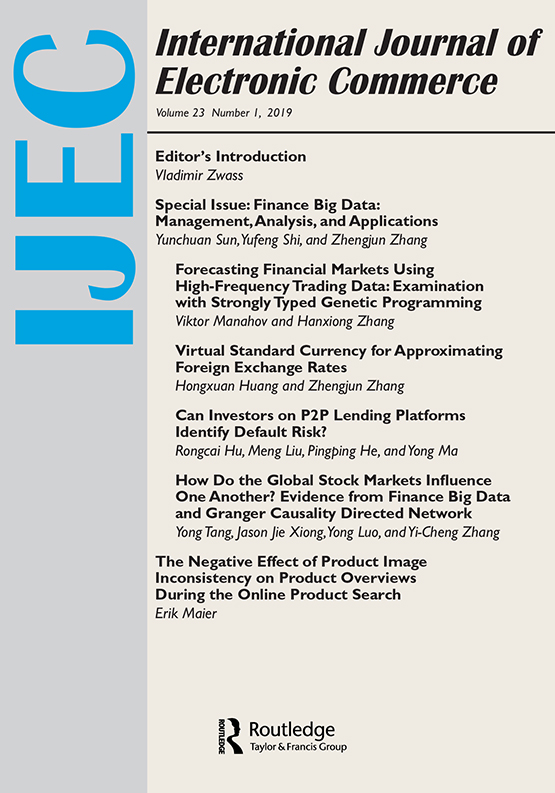Are you keeping your Facebook passions and habit under control? A dual-system perspective on Facebook addiction-like symptoms
IF 3.8
3区 管理学
Q2 BUSINESS
International Journal of Electronic Commerce
Pub Date : 2021-04-03
DOI:10.1080/10864415.2021.1887697
引用次数: 6
Abstract
ABSTRACT After many years of techno-enthusiasm, public discourse has turned to the dark side of technology and notably the dysfunctional consequences (e.g., addiction-like symptoms) of excessive social media use. Recent research in this area draws on dual-system theory and demonstrates that while habit predicts use, it does not directly predict addiction-like symptoms. This is not surprising, since habit lacks valence and its measurement does not discriminate between desirable and undesirable use. To clarify the antecedents of addiction-like symptoms, this paper extends prior research by drawing on the dualistic theory of passions and argues that habit is a manifestation of harmonious and obsessive passions that are anchored in the user’s identity. By applying structural equation modeling on survey responses from 225 U.S.-based users, we first replicate and confirm the main findings of prior studies and then proceed to show that harmonious and obsessive passion drive Facebook habit and use. Moreover, obsessive passion emerges as the exclusive driver of addiction-like Facebook symptoms while the restraining effect of self-control is mediated by the two passions, as well as habit and use. The main finding is that the dual-system explaining Facebook addiction-like symptoms comprises of obsessive passion as the direct driving force and self-control as the indirect preventative restraining force. Our analysis contributes to the debate about mitigating the negative effects of social media and opens up new questions for further research.你是否控制住了你在Facebook上的热情和习惯?脸书成瘾症状的双重系统视角
摘要经过多年的技术狂热,公众话语已经转向了技术的黑暗面,尤其是过度使用社交媒体带来的功能失调后果(如成瘾症状)。最近在这一领域的研究借鉴了双重系统理论,并表明虽然习惯可以预测使用,但它并不能直接预测成瘾样症状。这并不奇怪,因为习惯缺乏效价,而且它的测量并不能区分理想用途和不理想用途。为了阐明成瘾样症状的前因,本文借鉴了激情的二元理论,扩展了先前的研究,并认为习惯是植根于用户身份的和谐和痴迷激情的表现。通过对225名美国用户的调查结果应用结构方程模型,我们首先复制并证实了先前研究的主要发现,然后继续表明,和谐和痴迷的激情驱动着Facebook的习惯和使用。此外,痴迷的激情是类似Facebook症状的成瘾的唯一驱动因素,而自我控制的抑制作用是由这两种激情以及习惯和使用介导的。主要发现,解释脸书成瘾症状的双重系统包括作为直接驱动力的痴迷激情和作为间接预防抑制力的自制力。我们的分析有助于关于减轻社交媒体负面影响的辩论,并为进一步研究开辟了新的问题。
本文章由计算机程序翻译,如有差异,请以英文原文为准。
求助全文
约1分钟内获得全文
求助全文
来源期刊

International Journal of Electronic Commerce
工程技术-计算机:软件工程
CiteScore
7.20
自引率
16.00%
发文量
18
审稿时长
>12 weeks
期刊介绍:
The International Journal of Electronic Commerce is the leading refereed quarterly devoted to advancing the understanding and practice of electronic commerce. It serves the needs of researchers as well as practitioners and executives involved in electronic commerce. The Journal aims to offer an integrated view of the field by presenting approaches of multiple disciplines.
Electronic commerce is the sharing of business information, maintaining business relationships, and conducting business transactions by digital means over telecommunications networks. The Journal accepts empirical and interpretive submissions that make a significant novel contribution to this field.
 求助内容:
求助内容: 应助结果提醒方式:
应助结果提醒方式:


